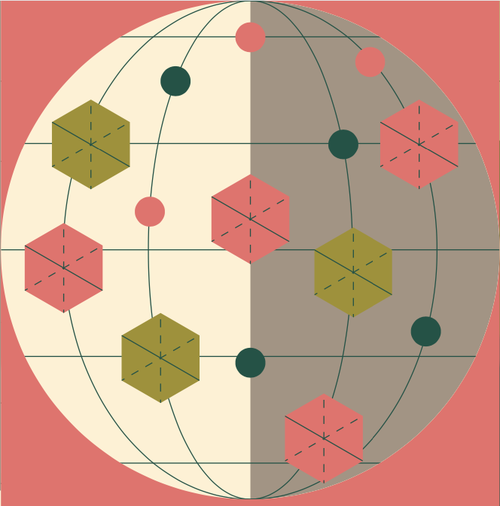You may be thinking: ‘This is all well and good; however, where will one actually hold all of this digital collateral to facilitate a privacy-preserving internet? A third-party provider?’
The answer is no.
In the next 5 to 10 years, it will be commonplace that each of us has our little private piece of the cloud totally and wholly owned by us, fortified by quantum-resistant encryption schemes so strong that neither the infrastructure providers we decide to host with nor the cyber-security arms of our global militaries will be able to fully ascertain our online activities or invade our privacy.
The Encrypted Internet will be used to manage some of the most important aspects of our lives, automating otherwise incredibly complex systems in the cloud directly, unbeknownst to the physical layer of everyday reality. Our data will be fortified, fully-owned and blockchain-verified in such a way that transaction fluidity is fully engendered and maximised – with blockchain as the trust layer, we can commerce with each other without fear. In that world, I don’t need to know your legal name in order to be of service to you, and you don’t need to know mine.

This next-generation internet is an amalgam of the existing internet and a global peer-to-peer structure that spans all corners of the Earth, composed of millions of individuals running their own private cloud instances and physical hardware stacks as home appliances. Following specific mathematical and computer science protocols, these countless individuals will contribute their independent or leased hardware resources to provide look-up, routing, storage, consensus, security and computing services for the various causes and networks they support and believe in.
With this upcoming fully-encrypted, end-to-end Internet, we will manage our personal digital assets and data through personally owned private-portals in the cloud. The software that powers this private-portal can be referred to as a 'Value Management System', or VMS for short. This author hypothesises that in the near future it will become a human right to own and have access to a VMS, as sure as it is a human right to own one’s identity and to have access to financial services. Once an individual has an owned decentralised identity, as a natural corollary he or she will also immediately have access to banking services through decentralised financial systems via cyber-currencies. One’s VMS will be the operating interface users use to manage their digital identity, assets, personal data and even their own node analytics.



